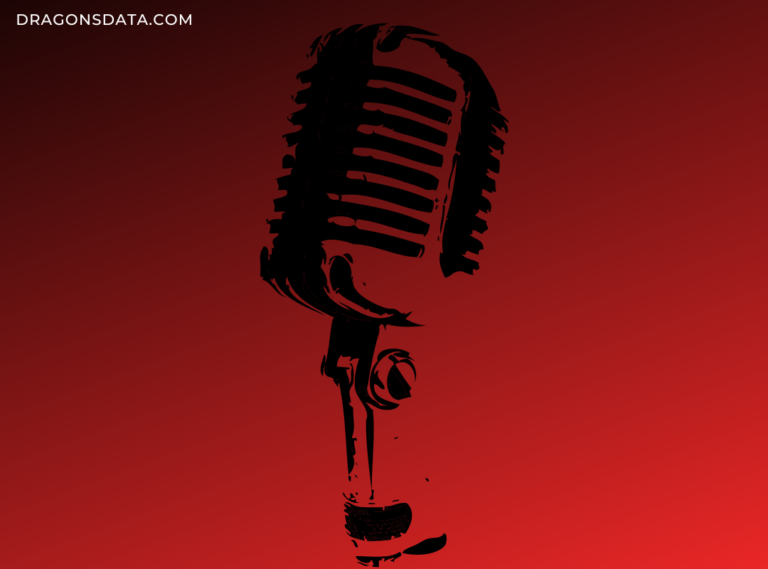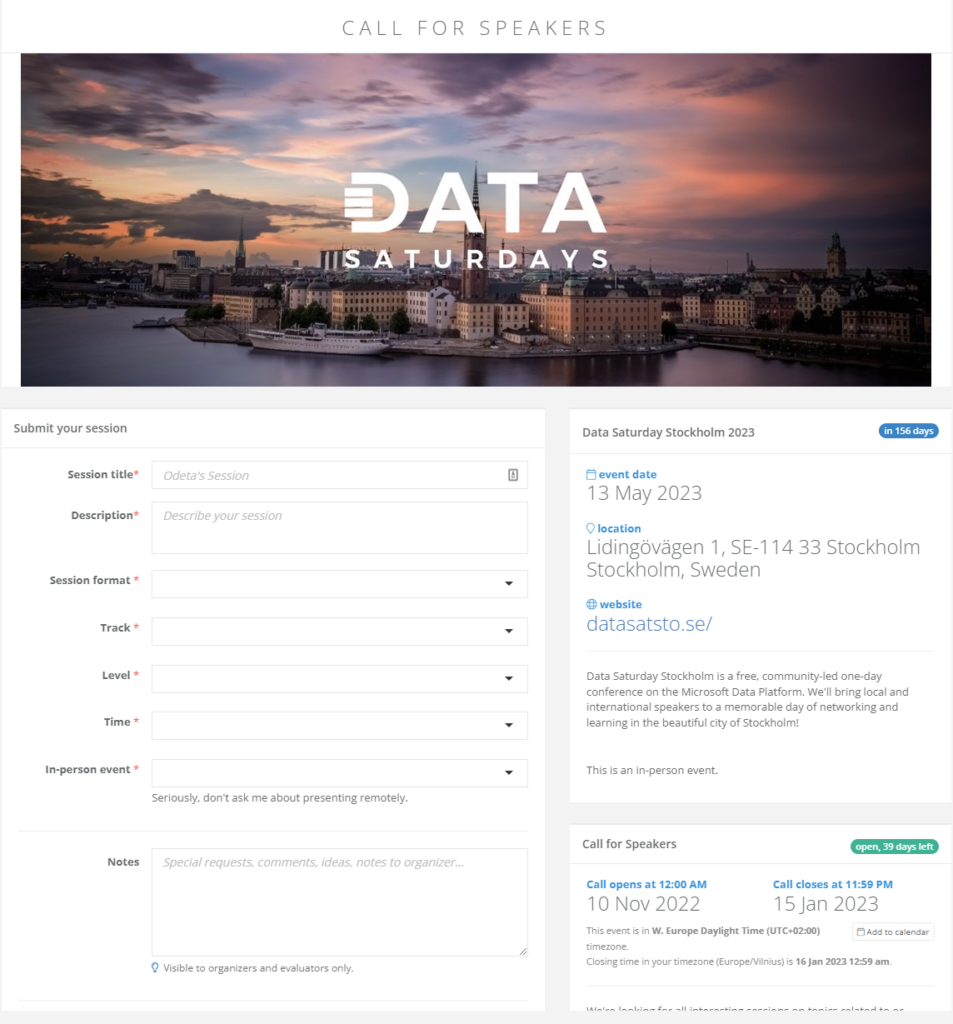
I had always admired people that could talk on stage before hundreds or more people and wanted to be one of them. I’m not quite sure why it attracts me, but I like to talk, and I like to teach. But I never imagined that I could do that, and really not on the international stage. So, I started my journey to public speaking.
I started with doing training sessions for my colleagues in the companies where I worked. Then, I worked as a trainer/teacher at Vilnius Coding School. After that, I did 1-one-1 training. Last year, I did various customer training and spoke in PPUG Lietuva. But this year, my speaking events went to another level. Next year, I’ll speak at 2 international conferences, Cloud Technology Townhall Tallinn 2023 in February and SQLBits in March. Maybe other events will come later.
How did it happen? Relatively easy, I might say. Of course, it depends on how to understand “easy”. I always thought that to speak at conferences, you need to be known, invited, or know someone from the organizers. Of course, that helps, but there is another way – apply to the conferences. This is how I got into these 2 conferences; I just submitted as many sessions as they allowed.
How All It Started For Me?
As I mentioned, I wanted to speak at conferences long ago but didn’t. I have 10 years of experience as a data analyst and have worked with Power BI almost since its launch. But still, I didn’t know how to become a speaker at these data conferences. I couldn’t imagine it happening because I thought you needed to be invited and invent or create something that wasn’t created before. What changed?
I started working with Marc Lelijveld, who has been speaking at conferences for quite some time. He saw that I had the same ambition and wanted to help me. So, when I attended the Power BI Next Step conference where Marc spoke, he talked with another speaker about me, Alexander Arvidsson. I don’t know exactly what he said, but Alexander went straight to me and talked about the need for new speakers and how I could start. It was so unexpected and nice that he came to an unknown person and spent some time he could have spent attending some session. But the biggest kick in the butt was when Marc suggested doing a session together and applying to SQL Bits. This didn’t mean that he did everything. He even asked me to pitch session ideas and write the description. Of course, he made the description as good as possible. Long story short, we’ll speak at SQLBits.
I wanted to say with this story that it’s great to know someone who is a speaker and can mentor you or at least point you in the right direction. If you don’t have such a person, I hope this post will help you and you’ll start your speaker journey!
How Can You Start?
I didn’t know that, but apparently, there is a website where you can create your speaker profile and apply to many conferences. It’s called Sessionize.
For the profile, you will need the following:
- Profile picture,
- Short description of yourself and your experience.
For the application to conferences, you will need the following:
- Session title
- Description
- Duration
- Other things depend on the conference. For example, some ask what your speaking experience is, and others don’t.
Session Title
It should be short and tell what this session is about. For inspiration, I would look at session names from previous events.
Session Description
I would take my time writing it. This is how organizers know if your session would be interesting for others or not. And if there is more than one session with the same topic, which one do you think they will choose? The one with a better description. Of course, this is my opinion, and I’m not an organizer and don’t know all the criteria. But if I can ask them when I’ll be speaking at their conferences, I’ll add a note or create a separate blog post about it.
So, if you want to start speaking at conferences, you need to have these parts in your session’s description:
- The hook is the first sentence that would catch the reader’s attention,
- Topics you will cover,
- What attendees will learn from it.
Here is an example of one of my sessions with my colleague Marc: Successfully collaborating with externals in Power BI.
Session Duration
There are different conferences, and they have different requirements for the session duration. Some have only long slots, at least 50 mins sessions, while others have different options, 5 mins, 20 mins, 50-60 mins or even all-day training sessions. So, it depends on how long you can speak about your topic. Of course, if you never spoke at conferences, it could be easier to start with shorter sessions.
For inspiration or curiosity, below, you can see which sessions were picked and what I will speak about at future conferences.
